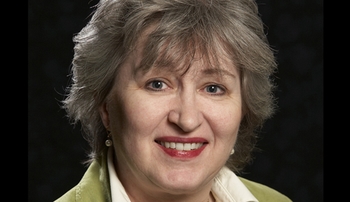Susan Swindells, M.B.B.S., was a co-investigator for a study that the leading journal, Science, has deemed the “Scientific Breakthrough of 2011” and that researchers say could lead to the end of the HIV/AIDS epidemic.
The study showed that the use of a combination of antiretroviral drugs by those with HIV/AIDS could stop the transmission of the disease to others in 96 percent of cases.
 |
Susan Swindells, M.B.B.S. |
Trapping the virus
The use of the medications can essentially quarantine the virus in those who already have it, Dr. Swindells said, which could halt its spread and lead to its complete eradication.
Major challenges exist, particularly when it comes to the distribution of the medications, said Dr. Swindells, who noted that nearly 40 million people are infected with HIV and less than half of them have access to the drugs.
A new focus
But the therapy’s effectiveness in the study has shifted the conversation about AIDS on many fronts. The study was even referenced by President Barack Obama earlier this year as he pledged more U.S. support to fight AIDS.
“To truly implement this treatment will take tremendous political will and financial support and it remains to be seen if that will manifest,” Dr. Swindells said. “But if it does, it could mark the end of AIDS, and that’s an amazing thought.”
Very exciting and so glad UNMC is part of such a breakthrough!
WOW!! Just imagine what impact this can have on World Health. Congrats. You are a star.
Congratulations! Interesting that I first read about this "Science Best" work in a Russian general media outlet (http://www.gazeta.ru/science/2011/12/23_a_3938026.shtml ). It did not list the authors and I thought "interesting, what do our HIV science team members think about it". How fitting !